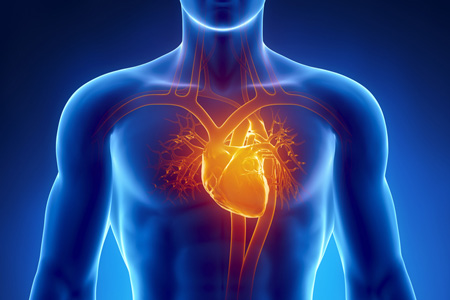4 Surprisingly Heart-Healthy Foods
- Published in Cardiovascular Disease

Cardiovascular disease has been the number one cause of deaths in the US. Because of this, a ton of research has been done on preventing heart disease and it has been clear that a healthy and active lifestyle can make the world of a difference. We at Ageless Forever know how important a healthy balanced diet can affect the heart. There are certain foods you should incorporate into your diet to be more heart-conscious and we’ll be discussing what you should keep stocked in your fridge and pantry. If you haven’t been trying your best to have a healthy heart, the time is now to change direction before it’s too late. Keep reading!
Cardiovascular Disease: Signs, Symptoms, and Prevention
- Published in Cardiovascular Disease

Cardiovascular Disease: Signs, Symptoms, and Prevention
According to the Center for Disease Control and Prevention (CDC), one person dies from cardiovascular disease every 37 seconds in the United States [1]. These numbers show that millions of Americans are affected by heart-related issues and are suffering the fatal consequences of not taking a proactive approach to their heart health.
Understanding what cardiovascular disease is, identifying symptoms early, and preventing irreversible damage can help you or your loved one live a long, healthy, and happy life.
4 Ways to Improve Your Heart Health
- Published in Cardiovascular Disease

The heart is one of the most vital organs responsible for our survival. Our hearts are constantly working 24/7, beating approximately 2.5 billion times in an average lifetime. With that said, heart disease is also the number one cause of death, claiming about 1 million lives a year. Heart disease is often caused by buildup of plaque, calcium, cholesterol, and other substances inside the coronary arteries that are responsible for supplying oxygen-rich blood to the heart muscles. Too much buildup restricts blood flow to the heart, which can result in a heart attack, stroke, or death. Knowing this, we must do what we can to ensure our hearts are functioning properly and optimally. Thankfully, there are some relatively simple lifestyle changes you can adopt to help you avoid or slow down, or drastically improve heart-related issues. Keep reading to learn more about how to work towards a healthier heart!
Testosterone treatment is NOT associated with risk of adverse cardiovascular events – the RHYME study
- Published in Testosterone Replacement Therapy

Effects of Testosterone Treatment in Older Men
- Published in Testosterone Replacement Therapy

Niacin Supplements - what you need to know about niacin products
- Published in Diet, Nutrition & Supplements

Niacin – a.k.a vitamin B3 – the neglected broad spectrum cholesterol drug!
- Published in Diet, Nutrition & Supplements
Niacin - vitamin B3 - when taken in high dose acts as a powerful cholesterol drug. Niacin is unique among all available cholesterol drugs because it has beneficial effects across the entire lipid/lipoprotein spectrum, including the three components of atherogenic dyslipidemia.
Why you need to look beyond your LDL - “bad cholesterol” - level
- Published in Cardiovascular Disease

Fish Oil for Fat Loss - can it really help you get in shape?
- Published in Diet, Nutrition & Supplements

Aspirin – can it save you from heart disease or cancer?
- Published in Primary Prevention & Lifestyle




